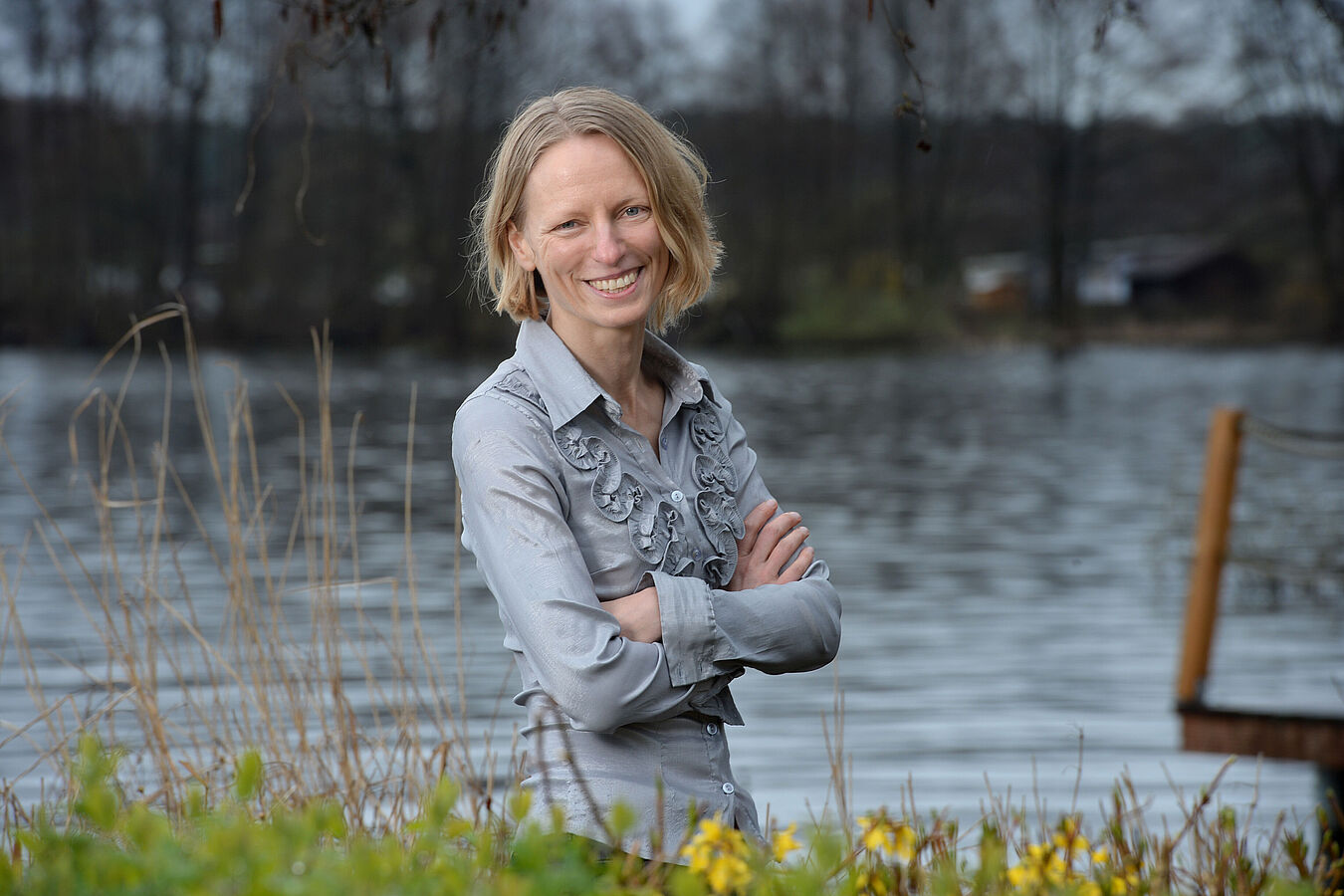Professor Wolinska’s field of research: Aquatic Evolutionary Ecology
Justyna Wolinska has been studying evolutionary and ecological processes mediated by parasitism in aquatic ecosystems for almost 20 years now. Parasites are ubiquitous and impose strong selection on their hosts to evolve resistance, while being themselves under strong selection to undermine host defences. She and her research group Disease Evolutionary Ecology aim to develop a better understanding of the interface between such host–parasite coevolution and major ecological processes in the face of global environmental change. Her research focuses on questions such as how parasitism contributes to the maintenance of genetic diversity, how it shapes interactions between host and non-host species, and how anticipated environmental challenges will modulate the occurrence of disease and its underlying ecological consequences.
Justyna Wolinska’s research group uses a combination of empirical approaches. Through field studies of natural populations, the group is exploring the links between parasitic infection and genetic diversity, as well as between environmental factors and the occurrence of disease. Specifically, they track phenotypic and genetic changes in natural populations inhabiting sites representing a gradient of environmental conditions. Another component of her research involves experimental approaches, from single-generation experiments, to long-term studies, including experimental evolution assays. As a main model organism, her group has concentrated on the crustacean Daphnia, which is a well-established model in ecological, evolutionary and genomic research, and is a key component of aquatic food webs. Recently, Daphnia and their microparasites became a model for epidemiological research. In addition, Wolinska studies microscopic algae that can form harmful algal blooms, therefore altering the quality of water, and that are vulnerable to a number of pathogens.
Read the interview with Justyna Wolinska on Disease can also be something positive: How parasites help reduce cyanobacteria >
Stirring curiosity in teaching
Before joining IGB and Freie Universität Berlin in 2014, Justyna Wolinska has worked in four different countries and five different research institutes and universities. In addition to her research, she is engaged in university teaching. At Freie Universität Berlin, for example, she teaches courses on evolutionary ecology and global change, and design of scientific experiments: “To inspire curiosity in students, I strive to create an interactive and discussion-friendly environment, even when the group size is large. For example, I often expose students to controversial statements or case studies, and organise group brainstorming and discussions.”
Diversity is key, not only in aquatic ecosystems
Complementary to her scientific activities, Justyna Wolinska is committed to creating a friendly and safe environment at the Institute and in the scientific community. She strongly believes that paying more attention to diversity and inclusion will enhance not only our culture at the Institute, but also our scientific work: “All individuals contribute unique perspectives, and this mix of perspectives paves the way for smarter decisions, better ideas and outcomes, and greater innovation; thereby you maximise the group’s potential.” In her function as deputy Equal Opportunities Officer, in support of women in academia, and together with grassroot initiative IGB’s Diversity and Inclusion Group, she scrutinises recruitment procedures at IGB, organises workshops on diversity or unconscious biases, and is working on the development of the Diversity and Inclusion Strategy for IGB. Her goal is to create an environment where everyone feels appreciated and safe and can then bring their valuable and unique selves to work.
Justyna Wolinska about her professorship
“I especially enjoy designing experiments that allow reliable testing of specific research hypotheses. On the one hand, one needs to be cautious and careful in order to avoid potential confounding factors and to keep the plan realistic but, on the other hand, one needs to be innovative and take risks” states Wolinska, describing the motivation behind her activities. “Designing powerful experiments to crack open biological mysteries brings me an excitement that is hard to compete with.”
“Managing the impacts of climate change and other anthropogenic disturbances represents one of the biggest challenges of our time. Infectious disease frequency and severity are also predicted to considerably change. I am passionate about unravelling the evolution of pathogens in this changing world, and generate knowledge that contributes to improving our ability to predict disease outcome. My research group also advocates for a better integration of disease into ecological research. To improve predictability of ecosystem change under future environmental scenarios, such as increasing frequencies of harmful algal blooms, we must consider all important players including parasites.”
Congratulations, Justyna – we are most delighted to have you on board!


